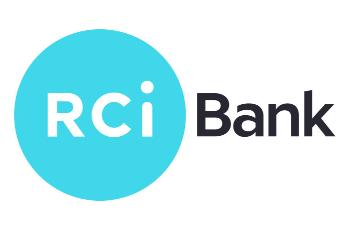This comparison simply includes all savings accounts.
Savings Accounts That Pay Monthly Interest
Why we like it: Unlimited deposits and withdrawals. Interest paid monthly: can be added to your Notice Saver or paid to your linked account. Easy application process, you just need a UK mobile phone and UK driving licence or passport. Manage account online. Maximum balance £250,000. Withdrawals subject to 90 days notice. Must be aged 18 or older and have a UK address. Must have a linked UK current account
Why we like it: Unlimited withdrawals subject to 95 days notice.
Why we like it: Interest paid annually. Unlimited deposits and withdrawals. Open and manage online. FSCS Protected. Must be UK resident and be aged 18 or older
Why we like it: Easy access savings account that tracks the Bank of England base rate. Wave goodbye to the constant cycle of account hopping and forget waiting for banks to pass on higher interest rates. Interest rate moves with the Bank of England base rate, guaranteeing a fixed margin of up to 0.5% below, and adjusts the very next day. Easy access to your money with once a month withdrawals, without notice and without fees. Earn daily interest on your money, and experience the power of compounding to make your savings work harder. Maximum deposit £250,000. Wombat has partnered with GB Bank to bring you the Base Rate Tracker. GB Bank is an award-winning, fully authorised and regulated UK bank. FSCS eligible on your deposits. Must be UK resident. Must be aged 18 or older
Why we like it: 4.90% AER if customer makes two or fewer withdrawals within an anniversary year. Monthly or annual interest. Manage your account online. Covered by the FSCS. If a customer makes three or more withdrawals in an anniversary year the rate reduces to 1.50% from the date of the third withdrawal. Must be UK resident and be aged 18 or older
Why we like it: A new savings account from Chip built to move with the Bank of England and reward you faster than the banks. Interest paid monthly. Deposit and withdraw almost instantly. No fees or charges for holding account. FSCS eligible on your deposits. Must be UK resident. Must be aged 18 or older.
Why we like it: Save from £1. Unlimited payments and withdrawals. Interest paid annually. Open in a single or a joint name. Maximum deposit £500,000. Open and manage account online. FSCS Protected. Must be UK resident. Must be aged 16 or older
Why we like it: All funds deposited into the RCI Bank E-Volve Savings 14 Day Notice Account will be used to fund pure electric vehicles and charging facilities. Interest paid monthly or annually. Manage account online. UK-based support, seven days a week. Which? Recommended Savings Provider. Unlimited withdrawals subject to 14 days notice. Must be UK resident. Must be aged 18 or older. Your eligible deposits with RCI Bank UK Limited are protected up to a total of £85,000 by the Financial Services Compensation Scheme (FSCS)
Why we like it: Monthly interest. Manage your account online. Unlimited deposits. Covered by the FSCS. Must be UK resident. Must be aged 18 or older. Unlimited withdrawals subject to 120 days notice. Maximum deposit £1,000,000
Why we like it: Choose monthly or annual interest payments. Unlimited deposits and withdrawals. 24/7 access to your savings. Open and manage online. After 12 months the rate will revert to the underlying rate, currently 1.55% gross/AER variable. Post Office Online Saver is provided by Bank of Ireland UK. Must be UK resident. Must be aged 18 or older. FSCS protected
Why we like it: Which? Recommended Savings Provider. No notice period. Deposit from £100. Interest paid monthly or annually. Apply in minutes. Your eligible deposits with RCI Bank UK Limited are protected up to a total of £85,000 by the Financial Services. Compensation Scheme (FSCS)
Why we like it: Instant access to your savings. Unlimited deposits and withdrawals. Interest paid monthly, either to a linked current account, or adding it to your Online Flexi Saver account. Easy application process, you just need a UK mobile phone and UK driving licence or passport. Manage account online. Maximum balance £250,000. Must be aged 18 or older and have a UK address. Must have a linked UK current account. Your eligible deposits with Investec Bank are protected up to a total of £85,000 by the Financial Services Compensation Scheme (FSCS)
Savings accounts that pay monthly interest
When putting your money into a savings account, you need to consider how long you intend to save for and how much of a return you would like to see. You can then compare the different types of savings accounts available to see which ones best match you saving goals.
If you are looking for monthly interest compare the options in the table above.
Earning monthly interest on your savings could be an attractive prospect, especially if you are only looking to put money aside for the short term.
Although the majority of savings accounts interest rates are still at records lows, there are some accounts that you could use to earn competitive monthly interest and bolster your savings in the short term.
Current Accounts
Current accounts generally offer the best rates of interest for smaller sums of money. However, if you go over your account’s interest limit, your remaining balance will likely earn you nothing.
To get the best deal, you may have to shop around and be willing to transfer your current account to a new provider. It’s also worth bearing in mind that some current accounts offer a better interest rate during an introductory period which then drops dramatically once that period is over.
Traditionally, current accounts have had relatively low monthly interest rates. However, in an attempt to attract your business, banks are offering competitive interest rates on current accounts along with switching bonuses and cash back offers. You may benefit from using a current account for your savings and taking advantage of the competitive rates.
Instant Access Savings Accounts
This type of account allows you to earn interest on your savings while still giving quick access to your money when necessary. Some instant access accounts come with a card that lets you draw money out at cash points, others require you to take money out in branch or transfer it to a current account online or by phone.
Some instant access savings accounts offer competitive rates of interest for the initial 12 months of the accounts life and then revert to their underlying interest rate.
For example, the Post Office are currently offering 1.29% monthly interest for the first year of opening the account before reverting to their underlying interest rate of 0.25%. This may be a good option for those looking for competitive monthly interest for a short period of time; you could even benefit from the competitive monthly interest for the first year and then switch to another account after the interest rate drops.
Please be aware there may be a limit on how many withdrawals you can make per year without losing some of your interest.
Easy Access Savings Accounts
Essentially the same as instant access accounts, except there may be a few days' delay when you wish to take money out. This is to allow withdrawal and transfer requests to be processed.
Some providers also refer to their instant access accounts as easy access accounts.
Notice Savings Accounts
These are similar to easy access and instant access savings accounts, except you have to give a certain amount of notice before removing funds. Common notice periods range from 40-95 days. The longer the notice period you are willing to give, the higher the interest rate you will usually receive.
Regular Savings Accounts
If you want to put away a little bit of money each month over a longer period, a regular savings account is likely to be the best choice. This kind of account usually requires you to deposit a minimum amount each month and will normally specify a maximum you can put in each month as well. There may also be a limit on how many withdrawals you can make each year.
Regular savings accounts often offer very attractive rates of interest, but it is important to note that, because you are only slowly building up capital, your initial yearly returns may be modest. This means that, while they can be used for short term savings, regular savings accounts are usually a better choice for longer term savings.
Fixed Rate Bonds
Fixed rate bonds tend to offer attractive rates of interest which will be guaranteed for the life of the bond (typically 1-5 years). The caveat here is that you cannot usually take money out of the bond until it matures (i.e. reaches the end of the fixed interest period).
This means most fixed rate bonds are not ideal for short term savings, although some providers do offer fixed rate bonds with terms as short as 3 months which may be worth considering.
Cash ISAs
UK tax payers normally have to pay tax on any interest they earn on their savings. However, a cash ISA allows you to earn interest, tax-free, on deposits up to an agreed yearly limit. For the 2017/18 tax year that amount is £20,000.
There are two main types of cash ISAs – instant access and fixed-term. Instant access cash ISAs allow you to withdraw money whenever you need without paying a penalty, making them ideal for short term saving. Fixed-term cash ISAs have similar conditions to fixed rate bonds, so you may be unable to withdraw money until they reach the end of their term or have to pay a penalty in order to do so.
Cash ISAs do not always offer the best interest rates, so you will need to assess whether any tax savings will outweigh the benefits of the higher interest rates provides by other types of accounts.
Find the best short term savings account for you
With so many different brands and products on the market, it can be hard to figure out which offer the best deals for you. The comparison table at the top of this page is regularly updated with the most attractive deals on short term savings accounts from across the industry. This makes it easy for you to contrast the features of different accounts and find the right one for your saving needs.
If you're looking to make the most of your savings in the UK, a monthly interest savings account can be a lucrative option. These accounts are designed to offer a steady stream of income by providing monthly interest payments on your balance.
How Do Monthly Interest Savings Accounts Work?
Monthly interest savings accounts function like regular savings accounts but with one key difference - instead of receiving interest on an annual basis, you earn interest every month. The interest is calculated based on the average balance in your account during that particular month. As a result, the more money you keep in your account, the higher the monthly interest you'll receive.
For instance, let's say you have £10,000 in your monthly interest savings account, and the annual interest rate is 2%. At the end of the first month, you'll receive an interest payment of £16.67 (£10,000 x 0.02 ÷ 12). As you leave your interest payments in the account, the balance will grow, and subsequent interest payments will be based on this new higher balance.
Advantages of Monthly Interest Savings Accounts
- Frequent Interest Payouts: Unlike traditional savings accounts that compound interest annually, monthly interest accounts offer a more regular income stream, which can be beneficial for those seeking steady returns.
- Boosts Savings Growth: With monthly interest payments being added to your account balance, your savings grow at a faster rate compared to accounts with annual interest payouts.
- Flexibility in Withdrawals: Most monthly interest savings accounts allow you to withdraw funds without penalties, providing you with the flexibility to access your money when needed.
- Diversification: By adding monthly interest savings accounts to your financial portfolio, you can diversify your investment strategy and balance risk.
Considerations Before Opening an Account
Before you rush to open a monthly interest savings account, it's essential to consider a few factors:
- Interest Rate: Compare the interest rates offered by different banks or financial institutions. Even a slight difference in rates can have a significant impact on your earnings over time.
- Account Fees: Some accounts may come with maintenance fees or transaction charges, which can eat into your earnings. Look for accounts with minimal fees.
- Minimum Balance Requirement: Check if the account requires a minimum balance to earn interest and avoid fees. Ensure it aligns with your financial capabilities.
- Access to Funds: Assess the ease of accessing your funds, whether through online banking, ATMs, or in-branch services.
- Terms and Conditions: Read the account's terms and conditions carefully to understand any limitations, restrictions, or bonus interest opportunities.
Factors to Consider When Choosing a Monthly Interest Savings Account
1. Interest Rates and Compounding Frequency
The interest rate is a significant factor as it directly impacts your earnings. Look for accounts with competitive interest rates that offer higher returns. Additionally, check the compounding frequency – whether the interest is compounded daily, monthly, or annually. More frequent compounding can boost your savings faster.
2. Fees and Charges
Be aware of any fees associated with the account. Common charges include monthly maintenance fees, transaction fees, or penalties for falling below the minimum balance. Opt for an account with minimal fees to maximise your savings.
3. Account Accessibility and Online Banking
Convenience matters when managing your savings. Check if the bank offers easy access to your account through online banking platforms and mobile apps. Quick and convenient access allows you to monitor your savings, make transfers, and view statements on-the-go.
4. Minimum Deposit and Balance Requirements
Different accounts come with varying minimum deposit and balance requirements. Some may demand a substantial initial deposit, while others have no minimum. Evaluate your financial situation to find an account that suits your budget.
5. Flexibility of Withdrawals
Consider how easily you can access your money when needed. Some accounts allow unlimited withdrawals, while others may have restrictions or penalties for early withdrawals. Assess your liquidity needs and choose an account that strikes the right balance between growth and accessibility.
6. Customer Service and Reputation
The bank's reputation and customer service are essential factors. Look for reviews and ratings to gauge the bank's reliability, responsiveness, and customer satisfaction. Good customer service ensures a smooth banking experience and prompt resolution of any issues that may arise.
7. Additional Account Features and Benefits
Some monthly interest savings accounts offer additional perks and benefits, such as bonus interest for regular deposits, cashback rewards, or savings tools. These features can enhance your savings experience and provide added value.
For example, Bank A's monthly interest savings account offers a bonus interest rate of 0.5% for the first six months if you maintain a minimum monthly deposit of £500. This could substantially boost your savings during the initial period.
8. Consider Your Financial Goals
Ultimately, the best account for you will depend on your unique financial goals and circumstances. If you're saving for a specific short-term goal, like a vacation, you may prioritise accessibility and lower fees. On the other hand, if you're looking to build a long-term emergency fund, a higher interest rate and minimal withdrawals might be more important.
For example, if you're a student looking to save for future expenses, Bank B's account with no minimum balance requirement could be an excellent choice to start your savings journey.
By carefully considering these factors, you can narrow down your options and select the best monthly interest savings account that suits your needs and maximises your earnings.
How to Open a Monthly Interest Savings Account
1. Gather Required Documents
Before you begin the application process, ensure you have the necessary documents to verify your identity and address. Commonly accepted documents include:
- Proof of Identity: Passport, driving license, or government-issued ID card.
- Proof of Address: Utility bill, bank statement, or council tax bill (dated within the last three months).
- Proof of Income: Payslips or tax returns may be required for certain accounts.
2. Research and Compare Options
Take the time to research and compare different monthly interest savings accounts from various banks and financial institutions. Consider factors such as interest rates, fees, accessibility, and additional benefits. Choose an account that aligns with your financial goals and requirements.
3. Choose the Best Account for Your Needs
Once you've narrowed down your options, select the monthly interest savings account that best suits your needs. Consider the interest rate, minimum deposit requirements, account accessibility, and any extra perks offered.
4. Complete the Application Process
If the bank allows online applications, visit their website and fill out the application form. Provide accurate and up-to-date information as required. Double-check the details before submission to avoid any delays.
5. Funding Your Account
After your application is approved, you'll need to fund your account with the initial deposit. This amount may vary depending on the account you've chosen. You can transfer funds electronically, through a bank transfer, or deposit a cheque if applicable.
6. Setting Up Regular Monthly Contributions
To make the most of your monthly interest savings account, consider setting up regular contributions. Automate the process by scheduling monthly transfers from your current account to your savings account. This way, you'll ensure consistent growth of your savings.
For example, you can set up an automatic monthly transfer of £200 from your current account to your monthly interest savings account on the 1st of every month.
7. Verify Account Activation
After completing the application and funding your account, you'll receive confirmation from the bank about the successful account opening. This may include details such as your account number and online banking login credentials.
8. Start Saving and Earning with a Monthly Interest Savings Account
Congratulations! You've successfully opened a monthly interest savings account. Now, keep a close eye on your savings as they grow with the monthly interest payments. Remember to review your account periodically to ensure it still aligns with your financial goals and to explore additional savings opportunities.
Tips to Maximise Your Savings with Monthly Interest Accounts
- Regularly Monitor and Manage Your Account
Stay on top of your savings by monitoring your account regularly. Keep track of your monthly interest payments and check for any discrepancies. Many banks offer online banking tools and mobile apps that make it easy to view your account balance, transactions, and interest earnings.
2. Take Advantage of Bonus Interest Opportunities
Some monthly interest savings accounts offer bonus interest rates or incentives for meeting specific conditions. These may include making regular monthly deposits, maintaining a certain balance, or not withdrawing funds for a specified period.
For example, if Bank C's account offers a bonus interest rate of 0.5% for maintaining a monthly deposit of £500, ensure you consistently meet this requirement to earn the bonus.
3. Automate Your Savings Process
Make saving a habit by automating your contributions. Set up automatic transfers from your current account to your monthly interest savings account on a regular basis. Automating your savings ensures you consistently contribute to your savings without the need for manual intervention.
4. Avoid Early Withdrawals
Resist the temptation to withdraw funds from your monthly interest savings account unless it's absolutely necessary. Early withdrawals can lead to reduced interest earnings or penalties, which may hinder the growth of your savings.
5. Reevaluate Your Account Periodically
As your financial situation and goals evolve, it's essential to reassess your monthly interest savings account periodically. Consider whether the account still aligns with your objectives and if there are better options available in the market.
6. Utilise Savings Tools and Budgeting Features
Some banks provide additional savings tools and budgeting features to help you manage your finances effectively. Use these tools to set savings goals, track your progress, and create a budget that supports your saving objectives.
7. Take Advantage of Compound Interest
Let your savings work for you by taking advantage of compound interest. As your monthly interest payments are added to your account balance, they, too, earn interest in subsequent months, compounding your overall earnings.
For example, if you receive a monthly interest payment of £25, that amount will also earn interest in the following months, leading to a snowball effect of earnings.
8. Consider Laddering Your Savings
If you have a substantial amount to save, consider laddering your savings across multiple monthly interest savings accounts. With laddering, you can diversify your savings with different terms and interest rates, allowing you to take advantage of various interest rate environments.
For instance, you could allocate £10,000 into a 1-year account, £15,000 into a 2-year account, and £20,000 into a 5-year account to benefit from different interest rates as they fluctuate over time.
Frequently Asked Questions (FAQs)
What is the difference between monthly interest and annual interest savings accounts?
The primary difference between monthly interest and annual interest savings accounts lies in how interest is calculated and paid. In a monthly interest savings account, interest is calculated and paid every month based on the average account balance for that month. On the other hand, in an annual interest savings account, interest is calculated once a year and paid at the end of the year.
Can I open multiple monthly interest savings accounts?
Yes, you can open multiple monthly interest savings accounts with different banks or financial institutions. Opening multiple accounts can help you diversify your savings and take advantage of various interest rates and features offered by different providers.
Are monthly interest savings accounts taxable?
The interest earned on your monthly interest savings account is subject to taxation in the UK. Depending on your individual tax circumstances, you may have to pay income tax on the interest earned. You can check the current tax-free savings allowance and consult a tax advisor for personalised advice.
What happens if I miss a monthly contribution?
If your monthly interest savings account requires a regular monthly deposit, missing a contribution may result in reduced interest earnings or forfeiture of any bonus interest offered. It's essential to stay consistent with your contributions to make the most of your savings account.
Can I convert a regular savings account into a monthly interest savings account?
Not all regular savings accounts can be converted into monthly interest savings accounts. Some banks may offer the option to upgrade your account type, while others may require you to open a new account specifically designed for monthly interest payments. Contact your bank to inquire about the possibility of converting your account.









